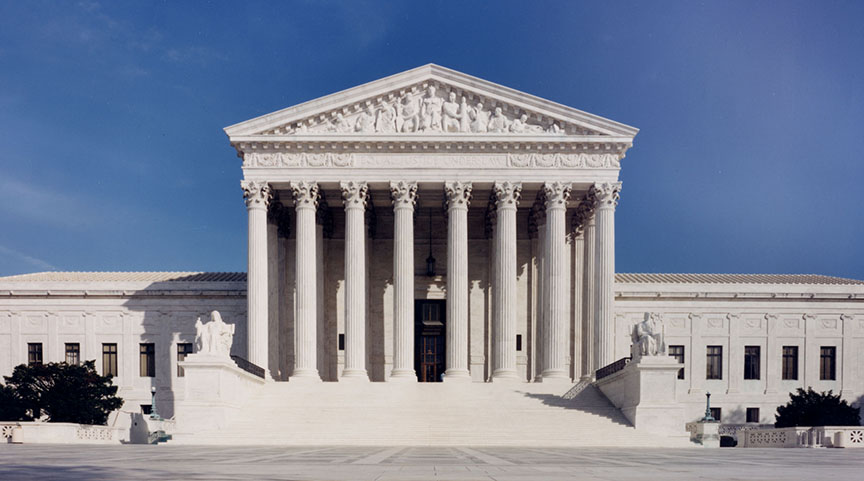
In 2015, California passed the Reproductive FACT Act, requiring licensed “crisis pregnancy centers” that provide services such as pregnancy tests and ultrasounds to post information about affordable abortion and contraception services offered by the state. The second provision required unlicensed facilities that provide these services to disclose their lack of medical certification.
California-based “crisis-pregnancy centers” sued in response to the requirements.
Today, the Supreme Court of the United States reversed the ruling of the Court of Appeals for the Ninth Circuit, which upheld the law. Instead, the U.S. Supreme Court blocked the law by a 5-4, all-male majority.
This ruling essentially allows virtually anyone to try to trick pregnant women into believing they are in a medical facility under the guise of free speech.
“This ruling is a blow to reproductive rights, but it’s even bigger than that. It’s a blow to evidence-based healthcare for women, period,” says Susan J. Frietsche, senior staff attorney at the Women’s Law Project. “We’re seeing laws that try to force doctors to lie to patients. We already know many states give out so-called informed consent booklets that contain misleading and inaccurate medical information. We’re seeing an all-out attack on reproductive healthcare in the United States, and it’s rooted in depriving women of both information and access to reproductive healthcare.”
The first crisis pregnancy centered opened on Hawaii in 1967. Since then, these facilities have exploded in number and vastly outnumber real healthcare facilities that provide abortion care.
In Pennsylvania, crisis pregnancy centers receive millions of taxpayer dollars every year. Pennsylvania is one of a handful of states that diverts Temporary Assistance for Needy Families (TANF) funds—safety-net funds for low-income families in need—to fund crisis pregnancy centers.
In September, 2016, the Auditor General of Pennsylvania launched an audit of Real Alternatives, chain of crisis pregnancy centers in Pennsylvania. At the time of the audit, Real Alternatives had a five-year grant worth $30.2 million. The audit was launched in part in response to a request from the Department of Human Services, because they could not determine how some of the grant money was being used.
In response to the audit, Real Alternatives sued the Auditor General for attempting to assess how they are spending taxpayer money.
Today, Real Alternatives is still funded with taxpayer money.
Now, with today’s U.S. Supreme Court ruling, those facilities can continue to refuse to inform women of their full range of reproductive healthcare options in some cases, even refuse to inform clients that they are not a medical facility.
The Women’s Law Project is a public interest law center in Pennsylvania devoted to advancing the rights of women and girls.
Sign up for WLP’s Action Alerts here. Follow us on twitter and like us on Facebook.
We are a non-profit organization. Please consider supporting equal rights for women and girls by making a one-time donation or scheduling a monthly contribution.

